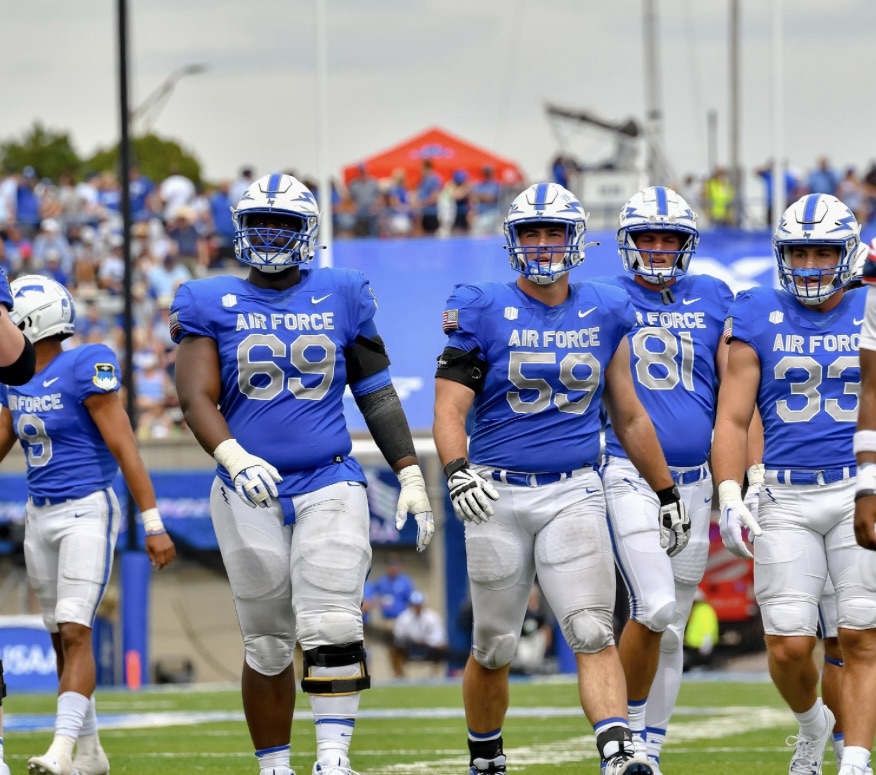
Defying Time’s Tide: The Champions League’s Enduring Veterans Over 35
In the relentless, high-octane world of professional football, age is often considered a formidable adversary. The conventional wisdom dictates that peak performance for outfield players typically falls between the ages of 26 and 30, with a gradual decline setting in thereafter. The UEFA Champions League, the pinnacle of European club football, amplifies these demands. It is a crucible of talent, speed, and endurance, where only the fittest and most skilled are expected to thrive. Yet, against this backdrop of youthful exuberance and athletic prowess, a remarkable cohort of players defies the odds. These are the veterans, the maestros who have crossed the 35-year threshold, not merely participating but actively shaping the narrative of Europe’s most prestigious club competition.
Their continued excellence challenges the very paradigms of sports science and athlete longevity. How do these seasoned warriors maintain their elite status in a league that demands perpetual innovation and relentless physical output? This article delves into the extraordinary careers of some of the Champions League’s most iconic figures who have continued to perform at an elite level well into their late thirties, exploring the multifaceted reasons behind their enduring success and the invaluable contributions they bring to their teams.
The Goalkeepers: Guardians of Time
The goalkeeper position has always been an anomaly when it comes to age. Less reliant on explosive sprints and sustained high-intensity running, goalkeepers often find their peak later in their careers, benefiting immensely from accumulated experience, positional understanding, and decision-making under pressure.
Gianluigi Buffon (Italy, Goalkeeper): A titan of the game, Buffon’s career is a testament to longevity. While he never lifted the Champions League trophy, his performances in the competition, particularly with Juventus, were consistently world-class even in his late thirties and early forties. His final Champions League appearance came at 43 years old for Juventus in the 2020-21 season. What made Buffon so enduring? Beyond his natural shot-stopping ability, it was his unparalleled leadership, commanding presence, and an acute understanding of the game. He read plays exceptionally well, organized his defense with an authoritative voice, and maintained an unshakeable focus. His passion for the game never waned, fueling his relentless dedication to training and physical upkeep. Buffon’s ability to maintain agility and reflexes while also evolving his game to suit modern demands – like improved distribution – allowed him to remain at the summit for decades.
Manuel Neuer (Germany, Goalkeeper): While not yet over 35 for the entirety of his most dominant UCL years, Neuer, now past 37, continues to be a crucial figure for Bayern Munich. His "sweeper-keeper" style demands exceptional athleticism and courage, attributes that typically diminish with age. However, Neuer’s commitment to fitness, coupled with his unparalleled reading of the game and precise distribution, has allowed him to sustain his revolutionary playing style. Even after significant injury layoffs, his return to the elite level demonstrates an extraordinary mental fortitude and physical resilience. His commanding presence, ability to initiate attacks, and one-on-one stopping remain among the best in the world, proving that even a physically demanding goalkeeping style can endure with meticulous care and inherent talent.
The Defensive Pillars: Wisdom and Positioning
For defenders, raw speed may decline, but it is often replaced by an enhanced understanding of the game, superior positioning, and tactical intelligence. These players become the silent architects of their team’s defensive solidity.
Thiago Silva (Brazil, Centre-back): At 39, Thiago Silva remains a linchpin in Chelsea’s defense, having won the Champions League with them in 2021 (at 36) and reached the final with PSG in 2020. His journey from AC Milan to PSG and then to Chelsea has been marked by consistent, elite-level performances. Silva isn’t the fastest defender anymore, but his uncanny ability to read the game, anticipate threats, and make crucial interceptions is second to none. His leadership on the pitch, organizational skills, and calm demeanor under pressure are invaluable. He conserves energy wisely, rarely committing to rash challenges, relying instead on his exceptional positional sense and quick bursts of movement when necessary. His dedication to recovery, diet, and a disciplined lifestyle has allowed him to maintain a physical condition that belies his age.
Pepe (Portugal, Centre-back): A warrior in every sense, Pepe, at 40, continues to defy expectations, captaining FC Porto in the Champions League. Known for his aggressive, no-nonsense defending and fierce competitiveness, many expected him to slow down years ago. Yet, he remains a formidable presence. Pepe’s longevity is a testament to his sheer will, incredible physical conditioning, and an unparalleled desire to win. He still possesses a remarkable turn of pace for his age, combined with dominant aerial ability and an intimidating physicality. His experience allows him to guide younger defenders and make crucial interventions, often stepping out of defense to break up play. His career, spanning Real Madrid’s dominant UCL era and his return to Porto, showcases a player whose passion for the game burns as brightly as ever.
Giorgio Chiellini (Italy, Centre-back): While he moved to MLS in 2022, Chiellini was a bedrock of Juventus’s defense well into his late thirties, reaching two Champions League finals. His last UCL appearance was at 37. Chiellini epitomized the art of Italian defending: tactical discipline, robust physicality, and a relentless desire to deny opponents. His understanding of defensive spacing, ability to mark dangerous forwards, and willingness to put his body on the line were unwavering. Like Silva, his reduced explosiveness was more than compensated by his intelligence, leadership, and formidable presence. His partnership with Leonardo Bonucci was legendary, built on years of shared experience and an almost telepathic understanding.
The Midfield Maestros: Orchestrators of the Game
In the engine room of the team, experience often translates into greater efficiency. Midfielders who excel in their late thirties are typically those who rely on vision, passing range, and tactical awareness rather than sheer running power.
Luka Modrić (Croatia, Central Midfielder): Currently 38, Luka Modrić is arguably the most outstanding example of midfield longevity in modern football. A five-time Champions League winner with Real Madrid, he continues to dictate play, thread impossible passes, and even contribute defensively. Modrić’s success is rooted in his exceptional ball control, unparalleled vision, and the ability to find pockets of space in congested areas. He doesn’t cover as much ground as he once did, but every touch and every pass is imbued with purpose and precision. His mental sharpness, decision-making, and ability to elevate his performance in crucial moments remain undimmed. Real Madrid’s careful management of his minutes, combined with Modrić’s own meticulous physical regime, has been key to his sustained brilliance.
Toni Kroos (Germany, Central Midfielder): While slightly younger than 35 for most of his UCL triumphs, Kroos, now 34, embodies the qualities of an enduring deep-lying playmaker. His game is built on exquisite passing, tactical discipline, and control of the tempo. He rarely wastes a pass, maintains composure under pressure, and his long-range distribution can unlock defenses from anywhere on the pitch. His longevity, like Modrić’s, is due to his intelligent play, ability to conserve energy, and an absolute mastery of his craft. He knows exactly where to be and what to do, making complex football look effortlessly simple.
The Unparalleled Strikers: Goal-Scoring Obsession and Adaptation
For forwards, the decline in speed and agility can be particularly challenging. Yet, a select few manage to adapt, refine their game, and maintain their lethal touch.
Zlatan Ibrahimović (Sweden, Striker): Though he never won the Champions League, Zlatan’s presence in the competition, even at 40 and 41 with AC Milan, was undeniable. He brought a unique blend of physical prowess, audacious skill, and an unwavering self-belief. His game adapted over the years, moving from a roaming forward to a more central, target-man role, using his strength, aerial ability, and exceptional finishing. His dedication to fitness, often sharing snippets of his intense training routines, was legendary. Zlatan’s continued drive to prove himself, combined with his natural talent and a fierce competitive spirit, allowed him to extend his career far beyond typical expectations.
Cristiano Ronaldo (Portugal, Forward): The Champions League’s all-time leading scorer, Cristiano Ronaldo, continued to perform at an elite level well into his late thirties. His final UCL season with Manchester United saw him score six goals at 37 years old. Ronaldo’s longevity is a monument to unparalleled dedication, an obsessive pursuit of physical perfection, and an incredible mental fortitude. He transitioned from a blistering winger to a clinical goal-poaching center-forward, relying on his aerial ability, powerful shot, and uncanny positional sense in the box. His training regimen, diet, and recovery protocols are meticulously managed, allowing him to maintain explosive power and speed beyond his years. Ronaldo’s insatiable hunger for goals and records pushed him to defy the aging process, setting new benchmarks for athletic longevity in football.
The Secrets to Enduring Excellence
What threads connect these remarkable individuals who defy the traditional footballing lifespan? It’s a combination of several critical factors:
-
Meticulous Physical Conditioning and Nutrition: These players invest heavily in their bodies. They adhere to strict diets, personalized training regimens that focus on strength, flexibility, and injury prevention, rather than just endurance. State-of-the-art recovery techniques, including cryotherapy, massage, and adequate sleep, are integral to their daily routines.
-
Unwavering Mental Fortitude and Experience: The mental aspect is perhaps the most significant. Years of competing at the highest level breed an unparalleled ability to handle pressure, make split-second decisions, and lead by example. Their vast experience allows them to read the game faster, anticipate plays, and position themselves optimally, thus conserving energy.
-
Tactical Intelligence and Role Adaptation: As physical attributes naturally decline, these veterans compensate by playing smarter. They become masters of energy conservation, making fewer, but more impactful, runs. Their roles often evolve, moving to positions that demand less high-intensity running (e.g., Ronaldo from winger to striker, defenders relying more on positioning than raw speed). They understand how to influence the game through their passing, vision, and leadership.
-
Passion and Love for the Game: At the core of their longevity is an enduring, almost childlike, love for football. This passion fuels their dedication, drives them through grueling training sessions, and motivates them to keep pushing boundaries. The joy of competing, winning, and performing at the highest level remains a powerful incentive.
-
Professional Support Systems: Elite clubs provide these players with dedicated medical teams, sports scientists, nutritionists, and specialized coaches who tailor programs to their individual needs, ensuring they are managed optimally to prevent injuries and maximize performance.
Conclusion
The Champions League’s veterans over 35 are not just anomalies; they are pioneers redefining what is possible in modern football. Their continued brilliance serves as a powerful reminder that while physical attributes are crucial, they are not the sole determinants of success. Experience, tactical acumen, mental resilience, and an unwavering dedication to one’s craft can extend a player’s prime far beyond conventional expectations.
These enduring legends provide invaluable leadership, stability, and moments of sheer brilliance that only years of experience can cultivate. They are mentors to younger players, living proof that consistent hard work and a burning desire to compete at the highest level can defy the relentless march of time. As sports science continues to advance, and player care becomes even more sophisticated, we may yet see more players follow in the footsteps of Buffon, Silva, Modrić, and Ronaldo, ensuring that the Champions League continues to be graced by the timeless artistry of football’s true enduring icons.



